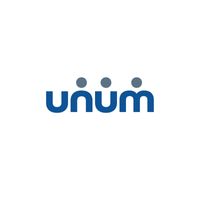5 tips for working with your group insurer to get people back to work
Illness and injury can happen to any workforce. The number of working days lost due to sickness or injury in 2022 was an estimated 185.6 million, up by 35.8 million on 2021 and 47.4 million more than its pre-pandemic 2019 level.
Latest data from the Office for National Statistics revealed the number of people not working due to long-term sickness has reached a record high of 2.57 million. More than 1.35 million (53%) of those inactive because of long-term sickness reported depression, bad nerves or anxiety in the three months to March 2023.
Group Income Protection (GIP) is more than just a financial payment to prevent the impact of long-term absence and paying claims — it can also offer health and wellbeing tools which can benefit both employers, and employees. This includes help for employees to stay in work or return to work after a period of sickness absence.
A one-size-fits-all approach won’t work for wellbeing, absence management and rehabilitation. However, here are five tips to help work together with your GIP provider for best results:
1. Early notification
The best time to request support from your GIP provider isn’t when an employee’s claim is expected to start payment. It’s long before that at the first sign of an employee struggling at work, so the business and the employee have ample chance to benefit from expert guidance designed to help the employee return to health and work.
The ideal time to notify your GIP provider of a potential claim is between eight and 12 weeks after initial reported absence to allow them to supply effective vocational rehabilitation support. Let your GIP provider offer that valuable expertise to an employee in need, with support from in-house clinicians such as physiotherapists, occupational psychologists, nurses and more.
2. Working together
To support the employee fully, it’s important to also establish a clear dialogue with their line manager. This can help identify the reasons for the absence. Ensuring managers have clear, direct communication channels with vocational rehabilitation consultants from your GIP provider can help information sharing from both sides. Discussions might include reviewing the employee’s job role, workplace relationships and agreeing workplace adjustments.
3. Return to work plans
Your GIP provider can help create a graduated return-to-work plan that is personalised to the individual and their circumstances. This approach can reduce ‘rebound’ absences, where employees aren’t quite ready to return to work and their symptoms recur. The true goal is not just getting employees back to work, it’s ensuring they can remain well enough to stay in work, with all the support they need.
4. Engage with added-value services
When it comes to absence management, prevention is better than cure. Offering people fast, direct, access to trained clinicians (such as GPs, physiotherapists and mental health professionals) can help tackle some of the major causes of sickness absence — before people actually go sick.
5. Educate from within
Although insurers can help keep employees well, changes to improve workplace health and absence management processes must also come from within. It’s therefore worth checking if your GIP provider offers line manager and/or HR training, as some may offer resources to help managers learn the best practice for supporting employees both during absence and return to work.
Helping managers spot the early signs of an employee struggling and giving them the confidence to proactively signpost to available support is essential in helping to prevent or reduce absence durations.
This type of training can enable managers to understand the importance of managing and recording sickness absence effectively. This can recognise risk areas in the business and also offer CPD-accreditation on topics such as mental health, cancer and musculoskeletal conditions at work.
Find out more about Unum’s On Course line manager workplace wellbeing workshops here:
Supplied by REBA Associate Member, Unum
Helping the working world thrive throughout life’s moments’








